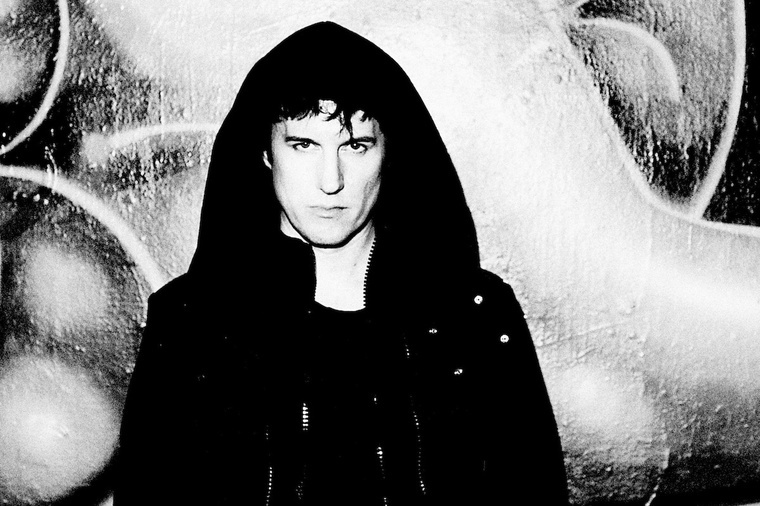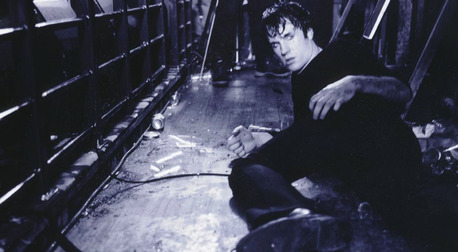Written by:
Simona Mantarlian
Share article:
A manifesto
A prolific and distinguished solo artist, producer and DJ, Alec Empire has released over a hundred albums, EPs and singles and remixed over seventy tracks for various artists. He was also the driving force behind the creation of the digital hardcore sub-genre and the record labels Digital Hardcore Recordings and Eat Your Heart Out.
We caught Alec Empire up during this year's edition of Club Transmediale festival in Berlin. He brought his re-built project “Low On Ice” to the stage for an intimate shows, using the soundtrack to take international audiences with him on an illusive trip back to Iceland’s harsh winter landscape. This most recent project, set for release on Geist (Low on Ice / The Complete Icelandic Sessions) compiles 175 minutes of previously unpublished material from his 1995 album and was presented live at CTM Festival's 16th edition, with visuals supplied by Zan Lyons.
Simona: I would start with a question that is a bit general – how would you define the revolution that Atari Teenage Riot stands for? Has the concept changed?
Alec Empire: No, I think the DNA of it is still the same. Because the topics we were talking about in the beginning are very similar. It’s just that technology has evolved. So, while in the ‘90s a lot of the stuff that we are talking about is coming right of that cyber punk scene from back in the day. The control of authorities has just evolved more, you know? The way the data of individuals has been exploited and tracked it’s just on another level than it was in the ‘90s. That means also that we had to adapt, we had to constantly reshape the things, update it, you know? Sometimes people ask me and they misunderstand, they think it’s a band, a traditional band, like a rock band. We see it almost more like software, you know? We keep updating it, changing it, improve certain aspects on it. This is how we are creative at this point. This is always what comes first, when the time is right: the ideas, the lyrics - it’s the most important thing.
S: Is it also like an anti-corporate manifesto, considering how corporations are using now the idea of a system which is reshaping the proportion between the time we use working and the time we use outside of work. You don’t have enough time to think outside the system.
A. E.: That’s true. Every time a corporation becomes too big; Google is a good example and everybody can understand. Ten years ago, it was important that people do this; now it has kind of swamped, they are too dominant, you know? All these things they control, like photography, movies, music - that’s not healthy. People can argue with me for hours, but they could never find a reasonable argument that is convincing. Because having everything centralized, this doesn’t create any competition; it’s not creative also. It’s the same like in music, for example, you have certain – like – big superstar acts or something, no matter what genre, they stay for too long, and we see this happening. For example, if you look at the line-ups of music festivals, they haven’t changed that much. There are still bands from the ‘90s or early 2000, like rock bands. And this causes a still stand. Some people look at the quantity of music or art, and think ‘oh, there’s more creative stuff than ever before’. But if we’re honest, we see now more people doing stuff, but what we’re missing is a strong creative impulse from certain scenes. You know… the last thing - maybe - that we saw was dubstep, which was in my opinion an extension of the drum and bass, and then this became almost like Frankenstein, because it ended up being like American EDM which is the most uninspiring music, to put like that. It always happens that the mainstream adapts certain things.




